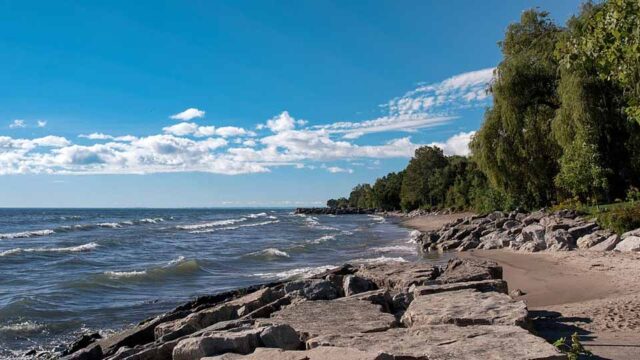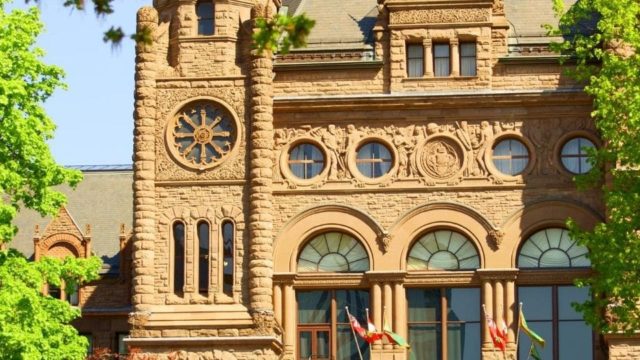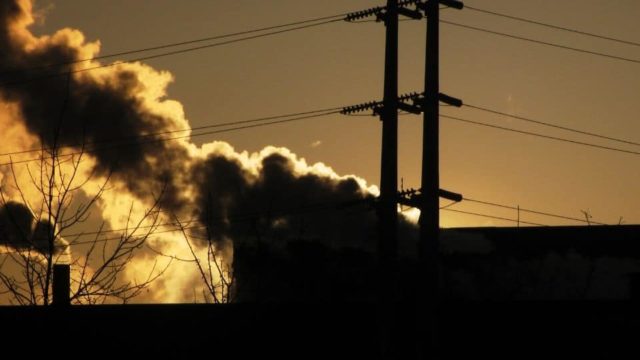Ontarians have worked incredibly hard to secure strong environmental protections for the province. Ontario was the first jurisdiction in North America to phase-out coal use and with the introduction of the Endangered Species Act, was once looked to as the gold standard in species protection.
But a lot has changed during the last couple of years — and we aren’t the only ones that have noticed.
On November 18, Ontario’s Auditor General released a series of reports that conclude the Ford government is failing to adhere to environmental laws and often does not provide enough time for consultation on legislation or post environmentally-significant proposals publicly at all.
Since stepping into office in 2018, the Ford government has launched a number of attacks on environmental protections, including: scrapping Ontario’s cap and trade program (without public consultation), fighting against the federal government’s national measures to combat the climate emergency, making major changes to Ontario’s Environmental Assessment Act, the Planning Act and other environmental laws without consulting Ontarians as required by the province’s Environmental Bill of Rights and suspending the public’s right to comment and appeal environmentally significant proposals made during the Environmental Bill of Rights exemption period (such as allowing industrial facilities to discharge pollutants to the air and water in Ontario communities).
We’ve also seen his government (unsuccessfully) try and shut down a youth-led climate lawsuit that challenges the province’s weakened climate plan.
If that wasn’t enough, the Ford government tabled a troubling budget bill in early November.
While the government has positioned the 2020 budget bill as laying the groundwork for an economic recovery, hidden within it is a mechanism to override the ability of Conservation Authorities to make science-based decisions regarding the protection of wetlands, woodlands, endangered species habitats and flood protection. This isn’t the first time the Ford government has tried to use a COVID-19 economic recovery plan to sneak through regulatory rollbacks and prevent members of the public from participating in environmental decision-making.
The government’s proposed changes would essentially give the province the ability to greenlight development permits in important ecosystems without the checks and balances the Conservation Authorities provide. In southern Ontario, it is estimated that we’ve already lost approximately 68 per cent of our original wetlands due mainly to development and agricultural intensification. We can’t afford to lose anymore.
Individually, each one of the changes made by the Ford government might not seem significant but when we take a step back and look at the bigger picture, as the Auditor General did recently, we start to see an Ontario whose deteriorating environmental protections expose people, the climate and ecosystems to irreversible harms.
At the end of November, Ecojustice took action and on behalf of Environmental Defence and Ontario Nature, announced it was bringing the Ontario government to court over its unlawful use of a Ministerial Zoning Order (MZO) to force through development on the provincially significant Duffins Creek wetlands complex.
The Ford government does not stand alone
The Ontario government isn’t the only one to have weakened environmental protections in recent months.
For example, Alberta Premier Jason Kenney, in the midst of the first wave of the COVID-19 pandemic, suspended important environmental reporting (which has since been reinstated following sustained criticism). His government has also continued to charge ahead with a controversial public inquiry into “anti-Alberta” activities, despite being unable to deliver a report or conclude its investigation in a timely manner.
While COVID-19 remains top of mind for most Canadians (and for good reason), we can’t lose sight of other issues, like the biodiversity crisis and the climate emergency, that Canada and the world must grapple with in a post-COVID world.
Now, more than ever, we need to be able to count on our elected officials to do what is in the best interest of communities, our health, and the protection of the environment that sustains us all.
What you can do to help
In the coming year, Ontarians will have to start thinking about whether they want to see another four years of attacks on the environment or whether it’s time for something different. In the meantime, here are three things you can do to make sure the Ford government knows Ontarians expect better from its elected officials:
1. Tell government where you stand – you can urge Minister of the Environment, Jeff Yurek to strengthen and implement protections in Lake Simcoe and set a better standard for protections of other water systems, like the Great Lakes.
2. Become part of #GenClimateAction. Show the courageous young people at the heart of our biggest climate lawsuit yet that they can count on you as they get ready to hold the Ford government to account for its poor climate record.
3. Share Ecojustice’s work with your friends and family. Whether it’s our youth-led climate case or holding the Ford government to account for not consulting Ontarians on environmental decision-making, the more people that know about what the government is doing, the less likely these changes will fly under the radar.




